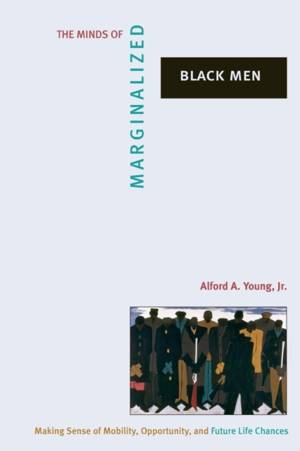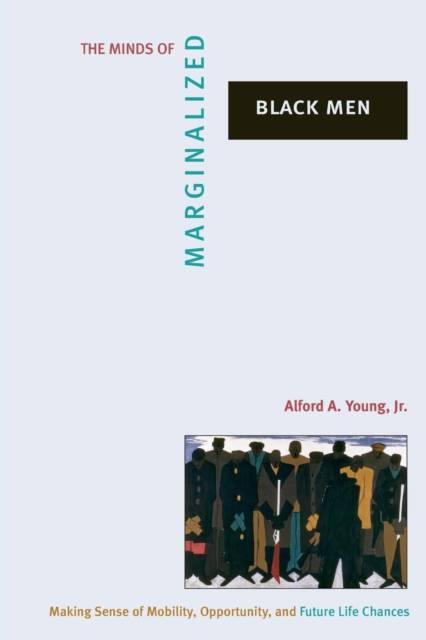
Je cadeautjes zeker op tijd in huis hebben voor de feestdagen? Kom langs in onze winkels en vind het perfecte geschenk!
- Afhalen na 1 uur in een winkel met voorraad
- Gratis thuislevering in België vanaf € 30
- Ruim aanbod met 7 miljoen producten
Je cadeautjes zeker op tijd in huis hebben voor de feestdagen? Kom langs in onze winkels en vind het perfecte geschenk!
- Afhalen na 1 uur in een winkel met voorraad
- Gratis thuislevering in België vanaf € 30
- Ruim aanbod met 7 miljoen producten
Zoeken
The Minds of Marginalized Black Men
Making Sense of Mobility, Opportunity, and Future Life Chances
Alford A Young
€ 88,95
+ 177 punten
Omschrijving
While we hear much about the "culture of poverty" that keeps poor black men poor, we know little about how such men understand their social position and relationship to the American dream. Moving beyond stereotypes, this book examines how twenty-six poverty-stricken African American men from Chicago view their prospects for getting ahead. It documents their definitions of good jobs and the good life--and their beliefs about whether and how these can be attained. In its pages, we meet men who think seriously about work, family, and community and whose differing experiences shape their views of their social world.
Based on intensive interviews, the book reveals how these men have experienced varying degrees of exposure to more-privileged Americans--differences that ground their understandings of how racism and socioeconomic inequality determine their life chances. The poorest and most socially isolated are, perhaps surprisingly, most likely to believe that individuals can improve their own lot. By contrast, men who regularly leave their neighborhood tend to have a wider range of opportunities but also have met with more racism, hostility, and institutional obstacles--making them less likely to believe in the American Dream. Demonstrating how these men interpret their social world, this book seeks to de-pathologize them without ignoring their experiences with chronic unemployment, prison, and substance abuse. It shows how the men draw upon such experiences as they make meaning of the complex circumstances in which they strive to succeed.Specificaties
Betrokkenen
- Auteur(s):
- Uitgeverij:
Inhoud
- Aantal bladzijden:
- 288
- Taal:
- Engels
- Reeks:
- Reeksnummer:
- nr. 26
Eigenschappen
- Productcode (EAN):
- 9780691127002
- Verschijningsdatum:
- 5/02/2006
- Uitvoering:
- Paperback
- Formaat:
- Trade paperback (VS)
- Afmetingen:
- 162 mm x 234 mm
- Gewicht:
- 417 g

Alleen bij Standaard Boekhandel
+ 177 punten op je klantenkaart van Standaard Boekhandel
Beoordelingen
We publiceren alleen reviews die voldoen aan de voorwaarden voor reviews. Bekijk onze voorwaarden voor reviews.









